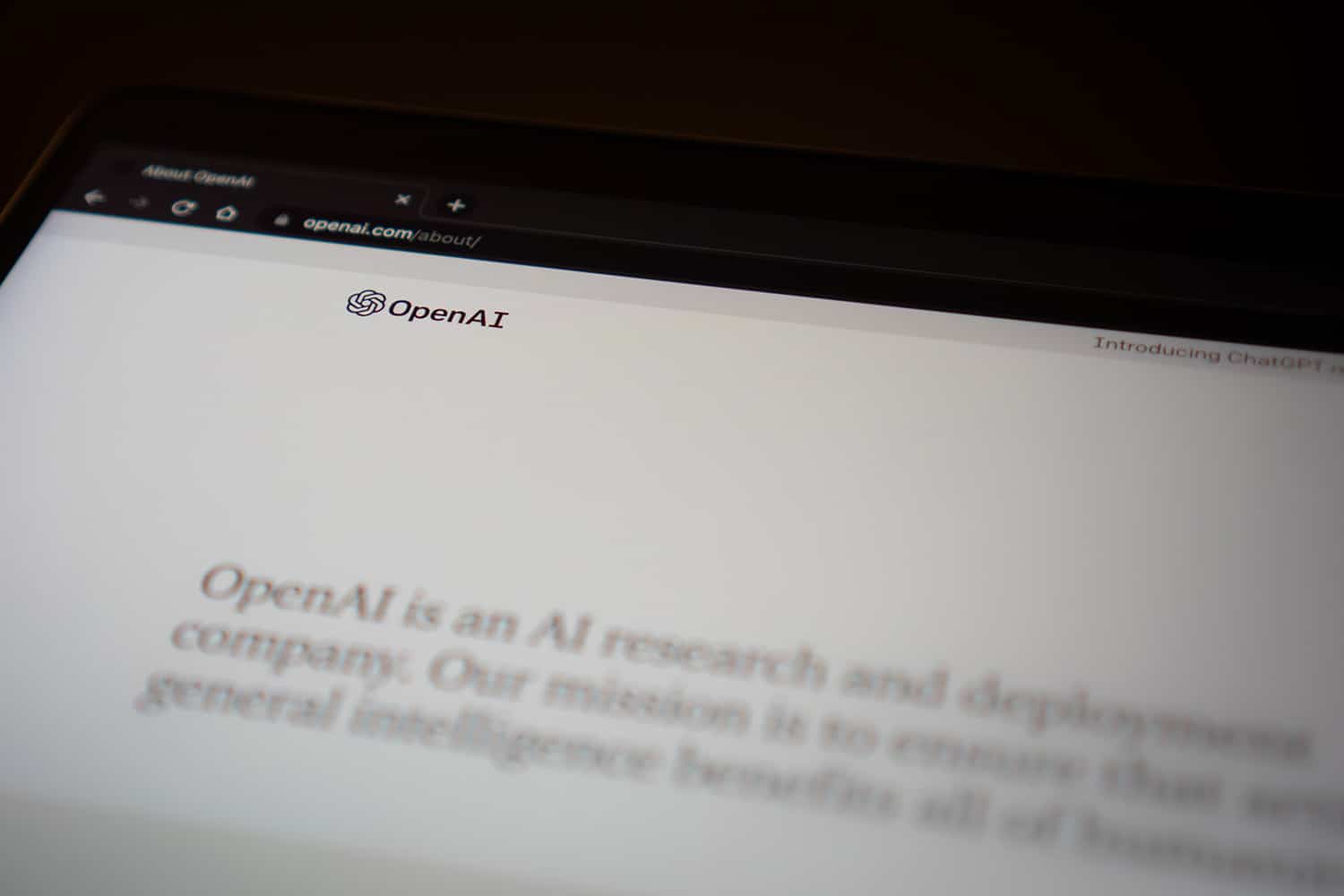Is data entry really the best use of your time?
If your answer is yes, stop reading this article.
The reality is that some people have the experience and creativity to justify keeping their mind on higher value tasks.
It’s a simple fear of the unknown that keeps most of us from implementing the obvious solution.
Let’s make the unknown known.
Why You’re Wasting Your Life on Data Entry
It’s obvious – you’re here, neck-deep in spreadsheets and forms, thinking this is business as usual. It’s not. It’s a slow crawl through an endless swamp of data entry. Every minute you spend hitting ‘Enter’ is a minute your competitors spend innovating, strategizing, and outpacing you.
You’ve been fooled into thinking this is just how it is. Well, it isn’t. There’s a whole world out there where the “should I outsource data entry” question was answered long ago. It’s time to answer this for yourself.
We’re tearing down the veil on the “safe” and “known” world of doing it all yourself. It’s time to explore the bold and smarter ways to handle the grunt work. And guess what? It doesn’t involve you.
What We’ll Cover
Here’s the game plan – a peek into the chapters of your soon-to-be bible on ditching the data drudgery:
- The Benefits of Outsourcing Data Entry: Why sending data entry packing is the best thing you’ll do for your business.
- Finding the Right Data Entry Outsourcing Partner: Not all heroes wear capes, some just punch data really well. We’ll show you how to find them.
- Data Security When You Outsource Data Entry: Keeping your data safe is no joke. Learn how the pros do it without breaking a sweat.
- Ensuring Quality and Accuracy: Because what’s the point if the data’s all wrong? Here’s how to ensure you’re not jumping from the frying pan into the fire.
- Outsourcing Data Entry to Freelancers: Find out why freelancers might just be the secret weapon you never knew you needed.
- Hiring a Dedicated Employee for Data Entry Tasks: Sometimes, you just need a flesh-and-blood human. We’ll talk about when and why that makes sense.
Let’s embark on a journey to transform “outsource data entry” from a dreary chore into your business’s new superpower.

Outsourcing Data Entry is Your Secret Weapon
Outsourcing data entry isn’t just a task to tick off; it’s a masterstroke in the art of business efficiency. This is where the gritty reality of resource management meets the strategic play of smart leadership.
- Cost Savings: We’re talking hard, cold numbers here. Outsourcing data entry slashes overhead costs significantly. You’re not just saving on the obvious salaries but also on the hidden costs — training, benefits, workspace maintenance, and technology upgrades. It’s like unloading a bunch of financial deadweight, letting your budget breathe and stretch in ways you didn’t know possible.
- Efficiency Gains: Imagine data being processed not just faster, but smarter. Outsourcing hands this task over to those who have honed their skills to razor-sharp precision. They bring tools, techniques, and tricks of the trade that turn data entry from a sluggish process into a sprint. It’s like upgrading from a clunky old desktop to the latest supercomputer.
- Focus on Core Business Activities: Here’s where things get real. With data entry off your plate, your brain and calendar are suddenly free to dive into the core of your business — innovation, strategy, customer engagement, product development. It’s about shifting from survival mode to growth mode, from playing defense to going on the offense.
Beyond the Basics – The Strategic Edge
- Agility in Market Response: Freed from the chains of data entry, your business becomes more agile, able to respond to market changes swiftly and effectively. It’s about being a step ahead rather than playing catch-up.
- Data-Driven Decision Making: With outsourcing, not only is your data handled efficiently, but it’s also processed in ways that can offer you deeper insights. This leads to more informed decision-making, a crucial edge in today’s data-driven business landscape.
- Scaling Up Made Easier: As your business grows, so do your data needs. Outsourcing data entry scales with your business, providing flexibility that’s hard to achieve with in-house resources.
- Access to Global Talent: Outsourcing opens the doors to a global pool of talent. You’re no longer restricted by geography in finding the best minds to handle your data.
Outsourcing data entry is like giving your business a secret superpower. By reallocating resources from mundane tasks to core business strategies, you’re not just saving time and money; you’re investing in the future of your business.

No BS Guide to Picking Your Data Entry Gladiator
Choosing the right avenue to outsource data entry isn’t about picking the first or cheapest option. It’s about finding a solution that aligns perfectly with your business needs, whether it’s AI tools, freelancers, or hiring a dedicated employee. Let’s break down the key factors to consider for each outsourcing option.
1. Assess Your Specific Needs
Start by evaluating what you need from your data entry solution. Volume of data, complexity, turnaround time, and budget all play crucial roles in determining whether AI, a freelancer, or an employee fits best.
- Tip: “Tailor your choice to your business’s unique data demands.”
2. Experience and Expertise
Regardless of the outsourcing option, the experience and expertise of the service provider are crucial. For AI tools, look into their technological sophistication and track record. For freelancers and employees, consider their work history and domain knowledge.
- Key Consideration: “Expertise is your assurance of quality.”
3. Data Security Across Platforms
Data security is paramount, whether it’s an AI system, a freelancer, or an in-house team. Ensure that they adhere to stringent data security standards and comply with relevant data protection regulations.
- Essential Aspect: “Your data’s safety should be a universal priority.”
4. Cost-Effectiveness and ROI
Analyze the cost-effectiveness of each option. AI tools might offer more scalability, while freelancers could provide more flexibility. An employee might be costlier upfront but can offer long-term stability.
5. Quality Control and Accuracy
For AI tools, check the error rate and the ease of correcting mistakes. When considering freelancers or employees, look into their accuracy track record and their process for ensuring data integrity.
6. Communication and Responsiveness
Effective communication is essential, especially with freelancers or remote employees. With AI tools, consider the support and customer service responsiveness.
7. Scalability and Flexibility
Your needs will change over time. Ensure that your chosen solution can scale and adapt. AI tools often offer great scalability, while freelancers and employees might provide more personalized adaptability.
- Tip: “Choose a solution that can grow and adapt with your business.”
Selecting the right method to outsource data entry is a strategic decision. It’s not just about offloading work; it’s about enhancing efficiency, accuracy, and ultimately, the success of your business. Whether it’s marketing automation, an AI tool, a freelancer, or a dedicated employee, make sure your choice aligns with your business goals and operational needs.
Data Security: The Beast You Didn’t Know You Had to Tame
In the realm of outsourcing data entry, data security isn’t just a concern; it’s the dark, growling beast lurking in the shadows. This isn’t about scare tactics; it’s about facing a stark reality. When you hand over your data, you’re exposing the lifeblood of your business to potential risks. But fear not, with the right approach, this beast can not only be tamed but turned into an ally.
Understanding the Gravity of Data Security
First, let’s get real about the risks. Data in the wrong hands can lead to:
- Financial losses
- Legal repercussions, and
- Irreversible damage to your reputation.
The stakes are high, and so should be your vigilance.
The Shield of Encryption
Any respectable data entry service should employ robust encryption — your first line of defense. It’s not just about having encryption; it’s about the strength and sophistication of these cryptographic shields. This ensures that your data, whether in transit or at rest, remains inaccessible to prying eyes.
Navigating the Maze of Compliance
Regulations like GDPR and HIPAA aren’t just bureaucratic hoops to jump through. They are crafted to protect personal and sensitive data. Compliance with these regulations is a litmus test for any outsourcing service. It’s not just about them following the law; it’s about them protecting your interests.

Access Control: The Inner Sanctum
Think of your data as residing in a fortress. Who has the keys to this fortress? Strict access control is non-negotiable. This includes stringent measures for both physical and digital access, ensuring that only authorized personnel can view or handle your data.
Proactive and Continuous Security Audits
Security isn’t a set-and-forget deal; it’s an ongoing battle. Regular security audits are crucial. They are like constant surveillance, looking for chinks in the armor and promptly reinforcing them. Opt for a service that doesn’t just perform these audits but is transparent about their findings and actions.
The Contingency Plan: Preparing for the Worst
Even the best-laid plans can go awry. In the unlikely event of a data breach, it’s vital to have a robust response protocol. This is not about fear-mongering; it’s about being prepared. Understanding your outsourcing partner’s breach response protocol gives you a clear picture of their crisis management capabilities.
The Human Factor
Finally, remember that at the heart of all these systems and protocols are people. Regular training and awareness programs for staff are crucial. The human element in data security is often the most unpredictable, and hence, regular training becomes indispensable.
Data security in the context of outsourcing data entry is a complex beast, but one that can be effectively tamed with the right approach and mindset. It’s about understanding the risks, implementing stringent controls, ensuring compliance, and preparing for contingencies.
Accuracy or Death
In the unforgiving world of business, accuracy in data entry is not just a requirement, it’s a lifeline. A single misplaced digit can lead to a domino effect of errors, costing not just money but also credibility. When outsourcing data entry, it’s imperative to ensure that accuracy is not just promised, but delivered with ruthless efficiency.
The Non-Negotiable Necessity of Accuracy
Data accuracy in the world of outsourcing is akin to walking a tightrope. There’s no safety net of second chances. It’s a world where precision is the only currency and the smallest error can have monumental consequences.
Quality Control: The Art of Precision
Quality control in data entry isn’t a luxury; it’s an essential weapon in your arsenal. This means adopting a culture of relentless scrutiny, where data is subjected to multiple layers of verification. It’s about creating an ecosystem where accuracy is not just a target, but a standard.
Setting Expectations and Benchmarks: The Precision Checklist
To ensure that your data entry is as accurate as a sniper’s aim, here’s a checklist to set the right expectations and benchmarks with your outsourcing partner:
- Define Clear Accuracy Standards: Spell out what accuracy means for your business. Is it 99.5% accuracy or absolute zero error? Make your expectations crystal clear.
- Precision starts with clear targets.
- Establish Robust Quality Control Processes: Demand information on their quality control protocols. How do they ensure accuracy? What measures are in place to catch and correct errors?
- Quality control is your safety net.
- Regular Performance Reviews: Set up a system for regular reviews of the data entry work. This isn’t micromanagement; it’s a critical audit of the health of your data.
- Regular check-ups prevent long-term ailments.
- Error Tracking and Continuous Improvement: Create a system where errors are not just corrected but analyzed for root causes, ensuring continuous improvement in the process.
- Track errors to their lair and eliminate them.
- Communication of Expectations: Make sure that your standards and expectations are communicated clearly and understood completely. Miscommunication can be the Achilles heel of accuracy.
- Clear communication is the cornerstone of precision.
In the high-stakes game of outsourcing data entry, accuracy is your most valuable player. Set these expectations with your outsourcing partner, and watch accuracy transform from a goal into a guarantee.

AI in Data Entry: The Silent Overlord
Embarking on the journey of outsourcing data entry to AI is like unleashing a powerful, silent overlord onto your data. It’s a leap into the future, where streams of numbers and data points are managed not by human hands, but by the unerring logic of algorithms. AI in data entry isn’t just about efficiency; it’s about transforming the very fabric of how we handle information.
The Pros
- Speed and Efficiency on Steroids: AI operates at a pace no human team can match. Imagine data being processed in a blink, with the accuracy of a master archer hitting bullseye every time.
- Scalability Like Never Before: As your business grows, so does your data. AI scales effortlessly, adapting to your expanding needs without the growing pains of hiring and training new staff.
- Precision and Reduced Errors: The beauty of AI lies in its precision. It’s not prone to the fatigue or distraction that can plague even the most diligent human workers.
The Cons
- Upfront Investment: Venturing into AI requires an initial investment, both in terms of finance and time. It’s like building a fortress; the effort is upfront, but the security it offers is unparalleled.
- Complexity in Integration: Integrating AI into existing systems can be complex. It requires a thoughtful approach, ensuring that your new AI system speaks the same language as your current tech ecosystem.
- Quality of Input Data: Garbage in, garbage out – this adage holds true for AI. The quality of your output is directly linked to the quality of your input data.
Leveraging AI for Data Entry: What to Consider
- Understand Your Needs: Before diving in, take a hard look at what you need from AI. Is it handling large volumes of structured data, or do you need it to parse through more nuanced, unstructured information?
- Plan the Integration: Map out how AI will fit into your existing workflow. It’s like introducing a new character into a well-established TV show – the integration needs to be seamless.
- Training and Adaptation: Be prepared for a learning curve. Just as you would train new employees, expect a period of training and adaptation with your AI system.
- Regular Updates and Maintenance: AI systems are not set-and-forget tools. They require regular updates and maintenance to stay sharp, much like keeping a high-performance sports car in race-ready condition.
Outsourcing data entry to AI is a bold move, one that positions your business at the cutting edge of technology. It’s not just about doing things faster; it’s about doing them smarter, with a level of precision and scalability that only AI can offer.
Freelancers: The Lone Wolves of Data Entry
In the wild world of outsourcing data entry, freelancers are the lone wolves – adaptable, elusive, and fiercely efficient. Opting to outsource data entry to freelancers is like hiring a mercenary; they come in, get the job done, and ride off into the sunset.
The Allure of Freelance Flexibility and Cost-Effectiveness
- Freelancers offer a level of flexibility that’s hard to match. They can scale up or down depending on your needs, making them the perfect fit for projects of varying sizes and durations.
- Cost-effectiveness is another ace up the freelancer’s sleeve. You’re paying for the work, not for the overheads that come with full-time employees. It’s like getting premium service without the premium price tag.
Finding the Right Freelancer: The Hunt Begins
Finding a reliable freelance data entry professional is like searching for treasure. You need to know where to look and what to look for:
- Platforms like Upwork, Freelancer, and Fiverr: These are the hunting grounds. They’re teeming with freelancers, each with their own set of skills and experiences.
- Look for Ratings and Reviews: Just like you’d read reviews before buying a product, dive into the freelancer’s past client feedback. It’s a window into their work ethic and quality.
- Portfolio and Previous Work: A freelancer’s portfolio is their battle scar, a testament to their experiences. Examine it to understand their fit for your specific needs.
Managing Remote Freelance Data Entry Workers: The Art of Remote Control

Once you’ve brought a freelancer on board, managing them remotely is an art form. Here are some tips to master this art:
- Clear Communication: Be crystal clear about your expectations, deadlines, and deliverables. It’s like setting the GPS before you start the journey.
- Use Collaborative Tools: Leverage tools like Slack, Trello, or Asana. These tools are like your digital command center, keeping everyone on the same page.
- Regular Check-ins: Schedule regular updates. It’s not about micromanaging; it’s about maintaining a rhythm and staying connected to the pulse of the project.
- Feedback and Flexibility: Be open to giving and receiving feedback. A good freelancer relationship is like a dance; it requires rhythm, respect, and the ability to adapt.
- Payment Terms and Timelines: Be upfront about payment terms. It’s like the rules of engagement in this partnership. Clarity here prevents misunderstandings later.
Outsourcing data entry to freelancers isn’t just a business decision; it’s a strategic move. It’s about harnessing the power of independence, flexibility, and specialized skill sets. In the quest to streamline and strengthen your data management processes, these lone wolves can be your most valuable allies, each keystroke bringing you closer to your business goals.
Hiring Your Own Data Entry Henchman
When it comes to managing your data, sometimes you need a henchman, not a hero. This is about hiring someone in-house, a dedicated soldier in the trenches of data entry. It’s a different kind of warfare, one where loyalty and consistency trump the flexibility and scale of outsourcing or AI.
When to Hire: The Checklist
Before you decide to bring in your own data entry henchman, ask yourself these questions:
- Is your data entry need continuous and long-term? If data entry is a core, ongoing function in your business, having a dedicated person might be more efficient.
- Do you require tight control and oversight? In-house staff allow for direct supervision and immediate course correction. That said, be careful you don’t give you don’t end up dealing with an employee who wants to run the show.
- Is your data highly sensitive or complex? Sometimes the nuances of your data are best handled by someone who deeply understands your business.
- Do you value team integration and company culture in your operations? An in-house employee can be immersed in your company’s ethos and workflow in ways a freelancer or AI can’t.
Pros of Hiring an Employee
- Consistency and Reliability: Having someone on your team means you can rely on a consistent output and work ethic.
- Greater Control: Direct oversight means you can quickly adapt and direct your data entry strategies.
- Team Integration: An in-house employee can collaborate closely with other team members, fostering a more integrated approach to data management.

Cons of Hiring an Employee
- Higher Costs: Salaries, benefits, and overheads like workspace and equipment add up.
- Less Flexibility: Scaling up or down is more challenging with a fixed workforce.
- Training and Management: Requires ongoing investment in training and management.
Recruitment, Training, and Management Tips
- Recruitment Tip: Look for candidates with attention to detail and a track record in data entry. Consider aptitude tests to assess their skills.
- Training Tip: Invest in comprehensive training to align them with your company’s processes and standards.
- Management Tip: Establish clear KPIs and regular check-ins to monitor performance and provide ongoing feedback.
Hiring your own data entry henchman is about bringing in a dedicated operative, someone who becomes a seamless part of your business machinery. It’s a commitment, both financially and managerially, but for the right business need, it can be the most effective move. Remember, in the world of data entry, whether you hire, outsource, or automate, the goal remains the same: precision, efficiency, and safeguarding your data like the gold it is.
The Power Move In Data Entry
It’s clear that whether you choose AI, freelancers, or your own dedicated employee, each path is fraught with its own challenges and rewards. The key lies in understanding your unique business needs and navigating these waters with a clear head and a strategic plan.
The Takeaway
- Know Your Needs: Assess the nature of your data entry needs. Are they sporadic or continuous? Simple or complex? Your answer will guide your choice.
- Weigh Your Options: Consider the pros and cons of each option — AI, freelancers, or an in-house employee. Each has its strengths and potential pitfalls.
- Plan for Security and Accuracy: No matter which route you choose, never compromise on data security and accuracy. These are the pillars of effective data management.
- Communicate and Manage Effectively: Whether it’s setting clear expectations with a freelancer, training an in-house team, or programming an AI, effective communication and management are key.
- Stay Agile: The world of data entry and business needs are ever-evolving. Stay agile and be ready to adapt your strategy as needed.
To outsource data entry, it’s more than just a task; it’s a strategic decision that can reshape the way your business operates. Whether you hire a lone wolf freelancer, an AI overlord, or a dedicated henchman, the goal is to enhance your business’s efficiency and effectiveness. In this game, the right move can turn data management from a chore into a competitive edge, propelling your business into a future where data isn’t just handled — it’s harnessed.







